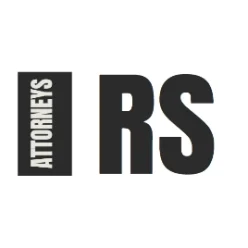
Here are examples of common issues people face if their Experian credit report erroneously shows them as deceased:
| Problem | Description |
| Credit Denial | Jason applied for a loan for home repairs but was denied due to a “deceased” status in his credit history. |
| Frozen Bank Accounts | Emily discovered that her bank accounts were blocked without warning, due to an error in her credit report. |
| Insurance Problems | Michael faced denial when trying to get insurance because the insurance company considered him deceased according to information from Experian. |
| Inability to Obtain a Mortgage | Ashley couldn’t get a mortgage for a new home purchase because her credit report erroneously showed she had died. |
| Rental Application Rejection | Brandon was rejected as a potential tenant for an apartment due to a “deceased” status in his credit history. |
| Inability to Obtain an Auto Loan | Lisa faced denial in getting an auto loan for a new car purchase because the credit bureau erroneously listed her as deceased. |
| Problems Obtaining Credit Cards | Thomas was unable to open a new credit card due to an erroneous death mark on his credit report, significantly hindering his financial flexibility. |
| Denial of Personal Loan | Sophia was denied a personal loan for urgent medical expenses due to an erroneous “deceased” status in her credit history. |
These scenarios underscore the importance of regularly monitoring credit reports and promptly responding to any inaccurate information.
How to Correct an Experian Incorrect Deceased Error Yourself
To correct an error in the credit report indicating a person as deceased on your own, follow these steps:
Step 1: Verification of the Error
- Obtain copies of your credit reports from all three major credit bureaus: Experian, Equifax, and TransUnion. You can do this for free once a year at AnnualCreditReport.com.
- Check the credit reports for the death error.
Step 2: Collecting Necessary Documents
- Prepare documents proving your live identity. This could include your passport, driver’s license, birth certificate, social security, and a photo of you with today’s newspaper.
- Gather additional evidence, such as recent utility bills or bank statements, showing your activity.
Step 3: Writing a Dispute Letter
- Write a dispute letter to each credit bureau that has the error. Include in the letter your full name, address, and social security number, clearly describe the error, and request its correction.
- Attach copies of all prepared documents.
Step 4: Sending the Letter
- Send the letter and documents by mail with delivery confirmation. This will ensure you have proof that your letter was delivered and received by the credit bureau.
Step 5: Monitoring the Process
- Credit bureaus are required to investigate your dispute within 30 days and notify you of the outcome.
- Monitor changes in your credit report. You can request new copies of the reports to ensure the error has been corrected.
Step 6: Re-dispute if Necessary
- If the error wasn’t corrected after the first dispute, you may need to file a lawsuit with the available evidence or seek assistance from a lawyer specializing in credit issues.
Step 7: Credit History Monitoring
- After correcting the error, regularly check your credit reports for new or recurring errors. Consider subscribing to a credit monitoring service.
Correcting such an error in your credit report requires patience and attention to detail, but following these steps can help restore your credit history and avoid future financial issues.
Why You Should Contact Our Law Firm
Contacting our law firm for issues with credit report errors, especially when it involves an erroneous indication of a client’s status as “deceased”, offers several significant benefits:
Working within the FCRA Law
We specialize in cases related to violations of the Fair Credit Reporting Act (FCRA), which protects consumer rights and sets strict requirements for credit bureaus regarding the accuracy of the information provided. Our knowledge and experience allow us to effectively correct errors in our clients’ credit reports, including those related to death notification.
No Prepayment for Services
One of the key advantages of our work is that clients do not bear any financial risks by seeking our help. We do not charge for our services upfront. Payment for our work is made only after successfully resolving your issue, and the party we file the case against, whether it’s a credit bureau or another financial organization that made the error, will pay.
Hundreds of Satisfied Clients
Our specialists have helped hundreds of clients restore their credit history by correcting incorrect information in credit reports. We pride ourselves on numerous positive reviews from clients who, thanks to our work, were able to regain access to financial services, obtain loans, and mortgages. This often involves dealing with dispute resolution, credit score impact, and ensuring proper deceased account management.
Million-Dollar Compensations
In our work, we not only strive to correct erroneous information in credit reports but also help clients receive compensation for the inconvenience and financial losses incurred. This includes engaging with financial institutions, managing security alerts, and ensuring personal information update. Our clients have received million-dollar compensations, a testament to the effectiveness of our work in managing credit fraud alert, death certificate submission, and the account closure process.
Conclusion
Turning to our law firm guarantees you a professional approach, full compliance with legislation in protecting your rights, and financial security. We aim not only to correct errors in credit reports but also to ensure our clients receive fair compensation for the inconveniences experienced, including issues with identity theft, credit freeze, estate settlement, and survivor’s responsibility. Your trust and a positive outcome are our highest priorities, backed by our commitment to credit monitoring and legal notification.
